Blog
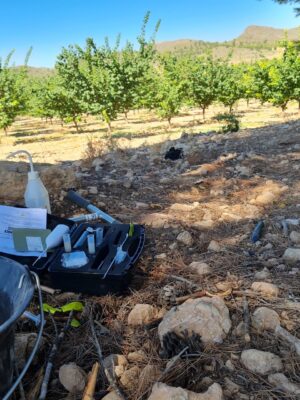
microBIOMETER® Soil Testing in France
The Biospheres, working through the CDA*, accompanies and trains farmers/agricultural companies in the agroecological transition based on a soil conservation approach. The group is also working on applied research projects and therefore on trials under real farming conditions in which they evaluate the impact of certain changes in practices on

Soil Carbon Q & A with Dr. Judy
We recently received the following questions from one of our customers and below are the responses from Dr. Fitzpatrick. Part of my research is surrounding the soil organic carbon results we attained from microBIOMETER®, and I am wondering if someone from your team could provide more information on what this

New York Times features Prolific Earth Sciences advisor/board member
Jeff Lowenfels, a valued advisor and member of our Board, was recently featured in the New York Times Sunday Magazine article, He Wrote a gardening column: He ended up documenting climate change. For 45 years Jeff has written a gardening column for the Anchorage Daily News and over this time

microBIOMETER® featured in award-winning science fair project.
Ariel White, a ninth grader at Pretty River Academy in Ontario, Canada, utilized microBIOMETER® in their science fair project titled Post Wildfire Forest Reboot Kit. The project was awarded first place at their high school and chosen to compete at the Simcoe County Regional Science Fair. At the regional fair,
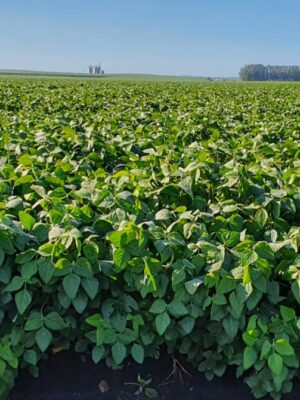
Soil testing update from Brazil
We were excited to hear from our long-time customer Marcelo Chiappetta of Chiappetta Agricultural Company on how his microBIOMETER® testing has been progressing. Below is what he shared with us. “Here in southern Brazil the past 5 years we’ve been working with biological agriculture and changing the way we see and
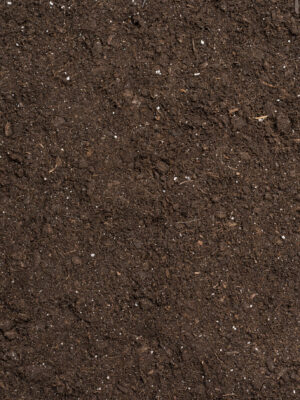
Improving soil health and carbon content
Modern agriculture practices have led to the systematic degradation of the world’s soil and release of carbon into the environment. The effects are increased need for expensive and environmentally dangerous inputs (fertilizers, pesticides, and herbicides), the loss of fertile top soil, decrease in water holding capacity of soil and dangerously
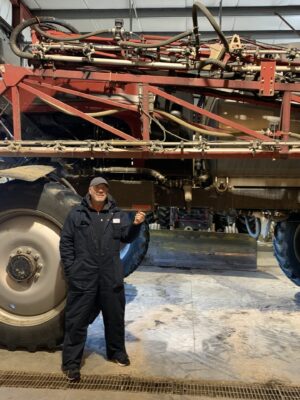
Testing bio fertilizers in Canada
Ralph Lett, head of product development at Acterra, was kind enough to share his microBIOMETER® experience with us. We love hearing the different ways our customers are using our soil test! Please contact us if you would like to share your soil testing story. “Thanks for taking an interest in

Soil carbon is a complex creature.
Soil carbon is important to soil health because it enables microbial life. Microbes are able to obtain carbon directly from plant exudates, however, much of their carbon source is from the dead plant and plant derived materials that they digest. We harvest much of the above ground matter from crops, but

microBIOMETER® on the golf course!
Graham Mackie, Golf Course Manager at Edzell Golf Course in the U.K., has been using microBIOMETER® to monitor the health of the soil on the greens. Here is what he had to say about our soil test. “I really like microBIOMETER®. It is simple to use and for the first time I
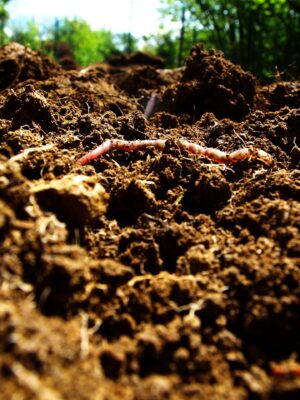
The Role Microbes Play in Increasing Soil Fertility
The microbial population or microbial biomass (MB) reflects soil fertility. For over 2 million years, plants and soil microbes have worked together to create what we call fertile “soil”. How do they work together? The plant supplies the microbes with carbon rich food. The microbes then mine the soil for
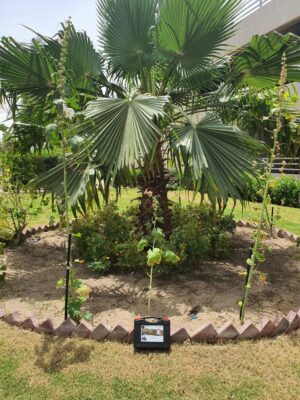
microBIOMETER® educating farmers in the Gulf Region on the importance of life in the soil.
Sustainable Organic Q8 was launched in mid-2018, educating people on recycling their organic waste, being environmentally aware and teaching people how to grow whatever and wherever they can. As far as gardening/farming styles, Sustainable Organic focuses on the value of the living soil and the soil food web and teaching

Soil Testing at the University of Louisiana at Lafayette
Last semester Soil Science and Environmental Pedology students under a supervision of Dr. Anna Paltseva [annapaltseva.com] conducted a soil microbial experiment on campus of University of Louisiana at Lafayette. First, each of the group of students collected different samples. Samples were collected from lawn, vegetable containers, around tree pits, and
